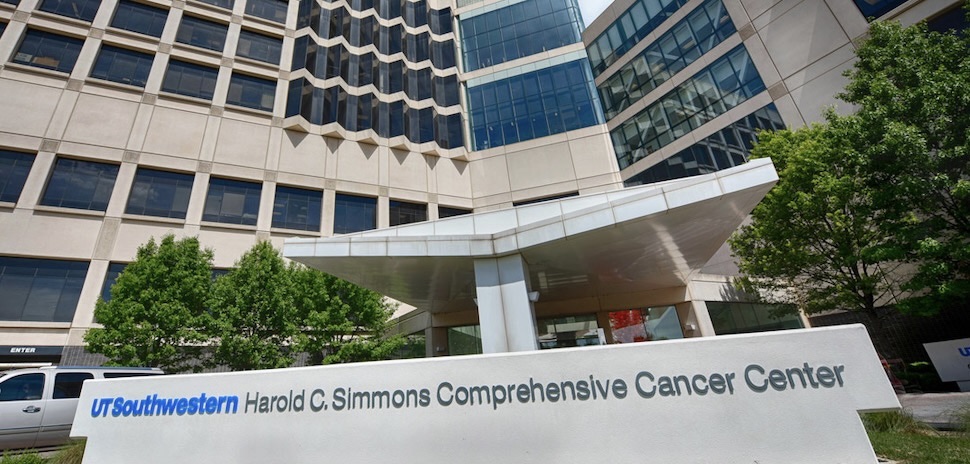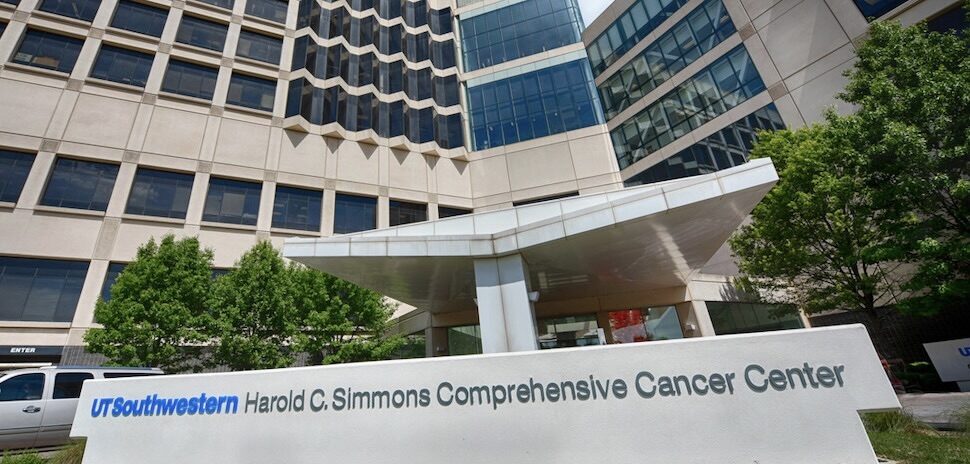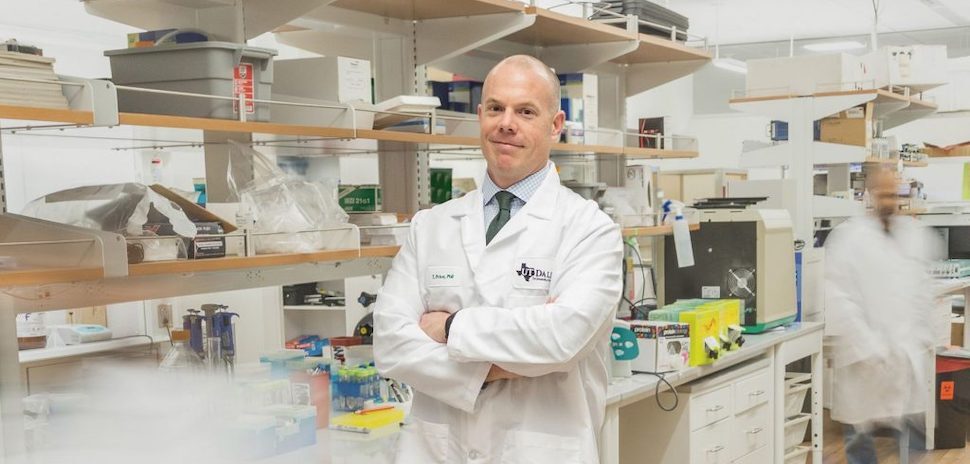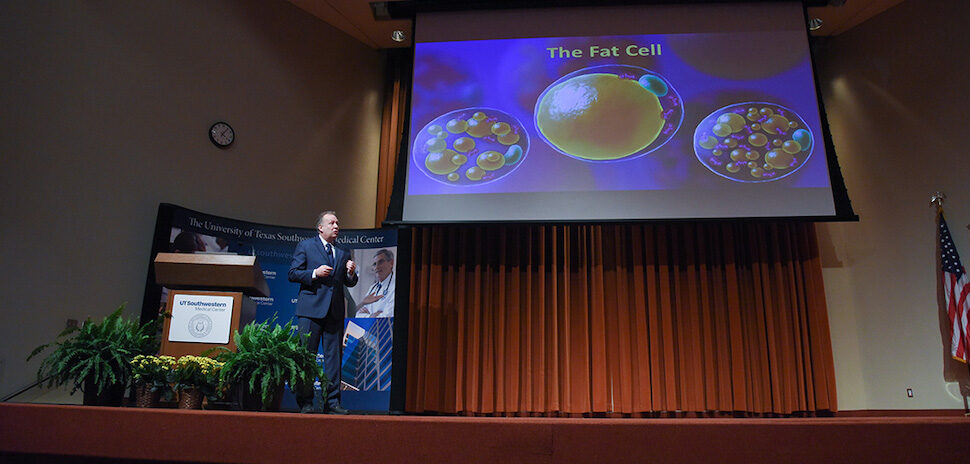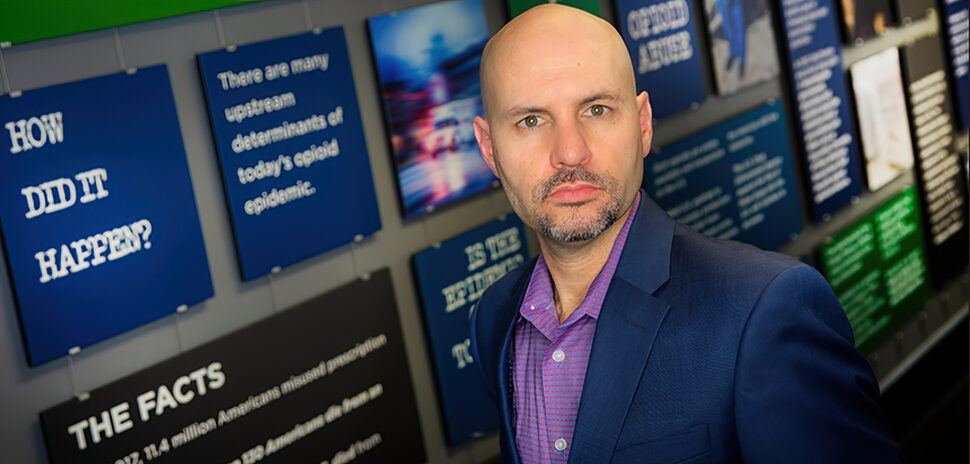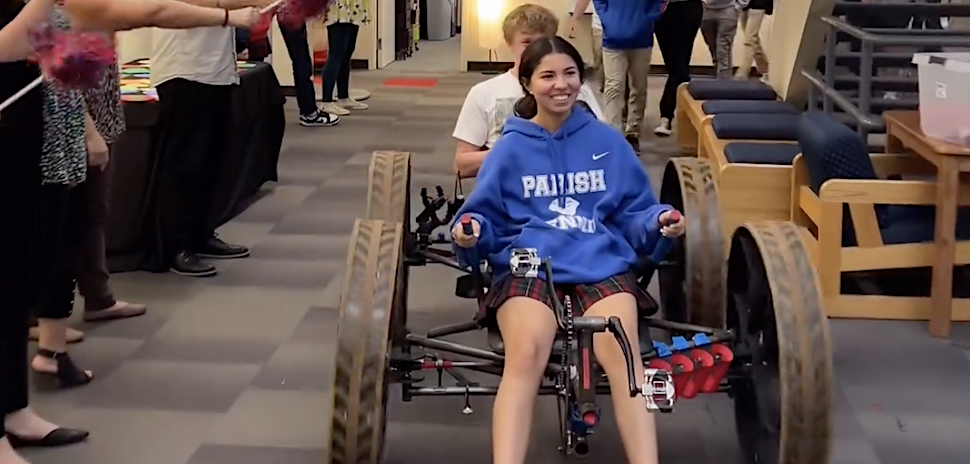The Harold C. Simmons Comprehensive Cancer Center at UT Southwestern Medical Center announced that 10 of its scientists have been awarded nearly $15 million in grants from the Cancer Prevention and Research Institute of Texas (CPRIT) to advance research on a wide range of cancer issues.
“Our researchers continue to push the envelope on developing a better understanding of cancer and new ways to help cancer patients in Texas and beyond, efforts that are well recognized in this current round of CPRIT funding,” Carlos L. Arteaga, M.D., director of the Simmons Cancer Center, associate dean of oncology programs at UT Southwestern, and holder of The Lisa K. Simmons Distinguished Chair in Comprehensive Oncology, said in a statement.
Here are the scientists and their awards:
Keith E. Argenbright, M.D., professor of Family and Community Medicine, in the Simmons Cancer Center, and in the Peter O’Donnell Jr. School of Public Health, was awarded $2,500,000 to expand a program that provides breast cancer screening and follow-up care for low-income, uninsured, or underinsured women in the North Texas area. This project is expected to fund at least 1,850 screening mammograms and 125 biopsies and aims to reduce disparities in breast cancer screening and detection, particularly those associated with race/ethnicity and socioeconomic status. Dr. Argenbright is a Distinguished Teaching Professor at UTSW.
David Gerber, M.D., professor in the Department of Internal Medicine and in the O’Donnell School of Public Health and holder of the David Bruton, Jr. Professorship in Clinical Cancer Research, was awarded $1,922,312 to expand existing lung cancer screening and tobacco cessation programs. The effort targets ZIP codes with the greatest lung cancer risk and most pronounced health disparities, particularly in southern Dallas. To accomplish this goal, nurse navigators at Parkland Health will provide education, logistical support, and psychosocial support to patients through telephone, video, and on-site interactions.
Rodney Infante, M.D., Ph.D., assistant professor of internal medicine, Division of Digestive and Liver Diseases, and in the Center for Human Nutrition, was awarded $1,050,000 to study changes in the tumor microenvironment that promote cancer cachexia, a wasting syndrome that causes significant fat and muscle loss. Leveraging better insight into these tumor-host interactions could lead to new therapeutics for this under-treated condition.
Mamta Jain, M.D., professor of internal medicine, was awarded $2,499,616 to expand an existing program that works to prevent liver cancer by screening for, immunizing against, and treating the associated hepatitis B (HBV) and hepatitis C virus (HCV). Rather than focusing on the baby boomer generation for these interventions, the researchers are expanding the program to focus on adults ages 18 to 79 for HCV and ages 19 to 59 for HBV.
Ram S. Mani, Ph.D., assistant professor of pathology and urology, was awarded $1,049,641 to better understand how enhancers – DNA switches that regulate the expression of genes – drive prostate cancer. The findings could lead to new strategies to prevent or delay prostate cancer.
Samuel McBrayer, Ph.D., assistant professor of pediatrics and in the Children’s Medical Center Research Institute at UT Southwestern, was awarded $1,048,465 to develop drugs based on a chemical called 5J12 that has shown promise in fighting glioblastoma (GBM), the most common type of primary brain cancer in adults. 5J12, which blocks a protein involved in making cholesterol, has been shown to kill GBM cells growing in petri dishes and has been given safely to mice. This work will be done in close collaboration with the laboratories of Deepak Nijhawan, M.D., Ph.D., Associate Professor of Internal Medicine and Biochemistry, UT Southwestern Presidential Scholar, and holder of the Joseph F. Sambrook, Ph.D. Distinguished Chair in Biomedical Science; and Jef De Brabander, Ph.D., Professor of Biochemistry and holder of the Julie and Louis Beecherl Jr. Chair in Medical Science.
Lance S. Terada, M.D., professor of internal medicine, chief of the Division of Pulmonary and Critical Care Medicine, and holder of the Dr. Carey G. King, Jr. and Dr. Henry M. Winans, Sr. chair in internal medicine, was awarded $1,049,994 to study how healthy cells, known as endothelial cells, support cancerous tumors using autophagy. In that process, old, damaged, or abnormal cellular components are broken down and recycled for important cellular functions. The researchers plan to study whether inhibiting this process could lead to new ways to fight cancer.
Tao Wang, Ph.D., assistant professor in the O’Donnell School of Public Health and in the Center for the Genetics of Host Defense, together with Junzhou Huang at UT Arlington and Alexandre Reuben at M.D. Anderson Cancer Center were awarded $1,199,997 to develop an artificial intelligence method that can predict binding between T-cell receptors and antigens on tumor cells. This knowledge could help facilitate the development of new, personalized immunotherapies for cancer patients.
Guanghua Xiao, Ph.D., professor in the O’Donnell School of Public Health and in the Lyda Hill Department of Bioinformatics and holder of the Mary Dees McDermott Hicks Chair in Medical Science, was awarded $1,303,815 to develop digital pathology and artificial intelligence tools to predict the prognosis of patients with rhabdomyosarcoma, the most common type of soft tissue sarcoma in children. Data from whole slide images, patient genetics, and clinical information could eventually be used collectively by this system to make more precise diagnoses and treatment decisions.
Zhenyu Zhong, Ph.D., assistant professor of Immunology, was awarded $1,049,997 to study the molecular underpinnings of liver inflammation that promote hepatocellular carcinoma, a type of liver cancer that has become the second-leading cause of cancer-related death worldwide. Results from this study could guide the future design of liver cancer therapies.
One of the nation’s premier academic medical centers, UT Southwestern integrates pioneering biomedical research with exceptional clinical care and education. Its faculty has received six Nobel Prizes, and includes 24 members of the National Academy of Sciences, 18 members of the National Academy of Medicine, and 14 Howard Hughes Medical Institute Investigators.
![]()
Get on the list.
Dallas Innovates, every day.
Sign up to keep your eye on what’s new and next in Dallas-Fort Worth, every day.










